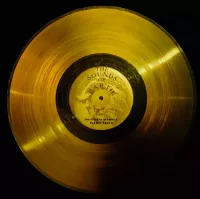iTunes is a media player, library, and mobile device management application created by Apple. Available on macOS and Windows, it allows users to purchase, play, download, and organize digital media. Key functions include ripping CDs, creating playlists, sound optimization, and wireless library sharing. iTunes serves as a central hub for managing Apple devices and accessing digital media content.
January 9, 2001: iTunes Announced
On January 9, 2001, Apple CEO Steve Jobs announced iTunes, focusing on music library organization and storage for Mac users.
April 28, 2003: iTunes Music Store Launched
On April 28, 2003, Apple launched the iTunes Music Store with 200,000 tracks available for purchase and download. In the first week, customers bought over one million songs. Music purchased was protected by FairPlay DRM.
October 16, 2003: iTunes for Windows Released
On October 16, 2003, Apple released iTunes for Windows.
May 2005: Video Support Introduced
In May 2005, with the release of iTunes 4.8, video support was introduced, initially limited to bonus features part of album purchases.
June 2005: iTunes Adds Podcast Support
In June 2005, Apple updated iTunes with support for podcasts. Users can now subscribe to podcasts, change update frequency, and define how many episodes to download and delete.
February 2007: Steve Jobs' Open Letter on DRM
In February 2007, Apple CEO Steve Jobs published an open letter to the music industry regarding DRM, which sparked discussion on the limitations imposed by the encryption layer.
April 2007: DRM-Free Music Introduced to iTunes Store
In April 2007, Apple introduced a selection of DRM-free music to the iTunes Store.
May 2007: iTunes U Launched
In May 2007, Apple launched "iTunes U" via the iTunes Store, delivering university lectures from top U.S. colleges.
June 2008: iPhone 3G Activation without iTunes
Beginning with the iPhone 3G in June 2008, activation did not require iTunes, making use of activation at point of sale.
July 10, 2008: Introduction of Native Mobile Apps for iOS
On July 10, 2008, Apple introduced native mobile apps for its iOS operating system. The App Store application on iOS devices serves as the storefront for browsing, downloading, updating, and managing applications.
January 2009: iTunes Store Music Catalog Goes DRM-Free
In January 2009, Apple removed DRM from its entire music catalog on the iTunes Store.
September 2010: iTunes Ping Announced
With the release of iTunes 10 in September 2010, Apple announced iTunes Ping, which CEO Steve Jobs described as "social music discovery".
June 2011: iTunes in the Cloud Announced
In June 2011, Apple announced "iTunes in the Cloud", allowing music purchases to be stored on Apple's servers and automatically downloaded on new devices. Also, the "iTunes Match" feature was introduced, which allows users to upload their own music, match it to the iTunes catalog, and make it available on other devices.
November 2011: Report of iTunes Security Vulnerability
In November 2011, The Telegraph reported that Apple had been aware of a security vulnerability since 2008 that would let unauthorized third parties install 'updates' to users' iTunes software.
September 2012: iTunes Ping Discontinued
In September 2012, Ping was discontinued.
June 2013: iTunes Radio Announced
In June 2013, Apple announced iTunes Radio, a free music streaming service.
June 2015: Apple Music Announced, iTunes Radio Integrated
In June 2015, Apple announced Apple Music, a subscription-based music streaming service. iTunes Radio functionality was subsequently integrated.
August 2017: iTunes U Collections Move to Podcasts App
With iTunes version 12.7 in August 2017, iTunes U collections became a part of the Podcasts app.
September 2017: App Store Section Removed from iTunes
In September 2017, Apple updated iTunes to version 12.7, removing the App Store section.
April 26, 2018: iTunes Released on Microsoft Store for Windows 10
On April 26, 2018, iTunes was released on the Microsoft Store for Windows 10, mainly to allow installation on devices configured to only allow software from the Microsoft Store. This version is more self-contained and updates automatically through the store.
June 10, 2020: iTunes U Discontinuation Announced
On June 10, 2020, Apple formally announced that iTunes U would be discontinued at the end of 2021.
February 2024: iTunes features split
In February 2024, iTunes for Windows had most of its features split into the Apple TV, Music, and Apple Devices apps. iTunes continues to be used for podcasts and audiobooks as there is currently no Windows version of Apple Podcasts. iTunes for Windows is still supported, and still receives security & iOS device driver updates.
2024: Apple is phasing out iTunes
As of 2024, Apple is phasing out iTunes in favor of three dedicated apps: Music, Podcasts, and TV. The iTunes Store will remain.
Mentioned in this timeline
Facebook is a social media and networking service created in...
Apple TV is a digital media player and microconsole by...

Microsoft an American multinational technology corporation headquartered in Redmond Washington...

An apple is a widely cultivated round edible fruit originating...
The iPhone is a smartphone developed and marketed by Apple...

Music is a cultural universal involving the arrangement of sound...
Trending

16 minutes ago Bryce Dallas Howard Celebrates 45th Birthday: A Look at Her Career

16 minutes ago Cameron Brink Reveals Fiancé's Email Introduction and Disappoints Fans with Relationship Status.

16 minutes ago Nate Williams shines in G League, joins Warriors amid blowout loss.

1 hour ago US, Israel launch military operation against Iran, airstrikes kill leader, Gulf earthquake follows.

1 hour ago Kaitlan Collins covers Bill Clinton's Epstein testimony and calls out Trump allies.

1 hour ago Adam Levine and Behati Prinsloo: Navigating Cheating Allegations and Maintaining Relationship
Popular

Jesse Jackson is an American civil rights activist politician and...

Hillary Diane Rodham Clinton is a prominent American politician lawyer...

Jim Carrey is a Canadian-American actor and comedian celebrated for...

XXXTentacion born Jahseh Dwayne Ricardo Onfroy was a controversial yet...

Kashyap Pramod Patel is an American lawyer who became the...

Michael Joseph Jackson the King of Pop was a highly...